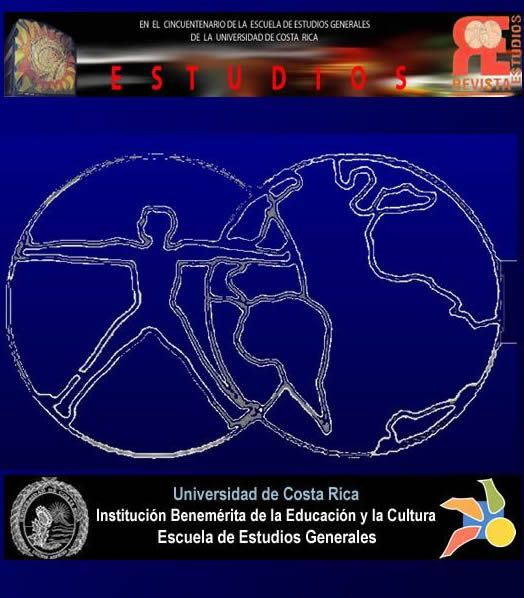Abstract
The OAS charter proclaimed a norm of democratic governance which validated the importance of representative democracy as central to peace and stability in the Western Hemisphere. While this normative commitment made sense in the era of the good neighbor policy, multilateralism and non intervention, U.S. abandonment of these principles since the Eisenhower Administration weakened the norm and created a crisis of legitimacy in the OAS through its treatment of Guatemala in 1954 and Cuba in 1962. The approval of Resolution VI in the meeting of foreign affairs ministers in 1962, excluding Cuba from the OAS because of its government’s Marxist ideology was a case of counterproductive institutionalization of the democratic governance norm. This article explores the cycle of regress and renewal of the democratic governance norm through an examination of the OAS treatment of Cuba since 1962 to the 39th OAS General Assembly in San Pedro Sula in 2009.References
BROOKE, James (1994) Castro Dons Civvies for Latin American Leaders. New York Times, June 16, 1994.
BUSTAMANTE, Michael y SWEIG, Julia (2008) Buena Vista Solidarity and the Axis of Aid: Cuban and Venezuelan Public Diplomacy. The Annals of the American Academy of Political and Social Science. March 2008, 616: 223-256.
CASTRO, Fidel. Reflexiones del Compañero Fidel: Otra vez la podrida OEA. 8 de mayo de 2009. En http://www.cubadebate.cu/index.php?pl=design/libros.tpl.html&n ewsid_obj_id=8860.
CASTRO, Fidel. Reflexiones del Compañero Fidel: ¿Tiene la OEA derecho a existir? 14 de abril de 2009. En http://www.cubadebate.cu/index.php?tpl=design/libros.tpl.html/n ewsid_obj_id=8860.
CHAYES, Abraham y HANDLER CHAYES, Antonia. (1995) The New Sovereignty. Cambridge: Harvard University Press.
CHEWNING, Lawrence (1999) La acción de la OEA en la defensa y consolidación de la democracia. En CASA DE AMÉRICA (Ed.). La OEA a sus cincuenta años, reflexiona ante el siglo XXI . Madrid: Casa de América.
CIA. Freedom of Information Act (FOIA). Current Intelligence Weekly Review, 21 July 1960.
DONNELLY, Jack (2000) Realism and International Relations. New York: Cambridge University Press.
DONNELLY, Jack. Sovereign Inequalities and Hierarchy in Anarchy: American Power and International Society. European Journal of International Relations, June 2006, 12: 139-170.
FINNEMORE, Martha y SIKKINK, Kathryn. International No rm Dynamics and Political Change. International Organization, 1998, 52 (4): 887-917.
GLEIJESES, Piero (2004) La esperanza destrozada. La Habana: Editorial Ciencias Sociales.
GLEIJESES, Piero. Moscow’s Proxy? Cuba and Africa 1975 -1988. Journal of Cold War Studies, 2006, 8 (2): 3-51.
GLINKIN, A.; MARTINOV, B. y YAKOVLEV, P. (1984) La Evolución de la política de EE.UU. en América Latina. Moscú: Editorial Progreso.
GUEVARA, Ernesto (1970) Cuba y el Plan Kennedy. Obras Completas. La Habana.
HUMAN RIGHTS WATCH (1999) La Maquinaria Represiva de Cuba. New York: Human Rights Watch.
INTER-AMERICAN COMMISSION ON HUMAN RIGTHS. The situation of Human Rights in Cuba: seventh report. Washington: PAS, 1983.
KATZENSTEIN, Peter (1996) The Culture of National Security: Norms and Identity in World Politics. New York: Columbia University Press.
LAKE, David. Regional hierachy: authority and local international order. Review of International Studies, 2009, vol. 35: 35-58.
LECHUGA, Carlos (1991) Itinerario de una farsa. La Habana: Pueblo y Educación.
LOWENTHAL, Abraham (2009) Renewing Cooperation in the Americas. En Lowenthal, Abraham; Piccone, Theodore y Whitehead, Lawrence (eds.). The Obama Administration and the Americas. Washington D.C.: Brookings Institution Press.
McKEOWN, Ryder. Norm Regress (2009) U.S. Revisionism and the Slow Death of the Torture Norm. International Relations, 2009, 23 (5): 5-25.
PASTOR, Robert (2001) Exiting the Whirlpool. Boulder: Westview Press.
PETTINA, Vanni. Del anticomunismo al antinacionalismo: La presidencia de Eisenhower y el giro autoritario en la Am érica Latina de los años 50. Revista de Indias, 2007, vol. LXVII (240): 573-606.
PINA, Jorge (2007) Insulza partidario de un deshielo con Cuba. The Associated Press, 16 de mayo de 2007.
RUSSELL, Roberto y TOKATLIAN, Juan. Modelos de política exterior y opciones estratégicas. El caso de América Latina frente a Estados Unidos. Revista CIDOB d’ Afers Internacionals, 2009: 85-86.
SCHLESINGER, Stephen y KINZER, Stephen (1984) Bitter Fruit. The Untold Story of the American Coup in Guatemala. New York: Doubleday.
SHAW, Carolyn.(2004) Cooperation, Conflict, and Consensus in the Organization of American States. New York: Palgrave MacMillan.
SIKKINK, Kathrin (2004) Mixed Signals. New York: Cornell University Press, 2004.
SUGANAMI, Hidemi. Narrative Explanation and International Relations: Back to Basics. Millenium, Journal of International Studies, 2008, 37 (2): 327-356.
WOOD, Bryce (1979) Human Rights and the Inter-American System. En FARER, Tom (ed.). The future of the Inter-American System. New York: Prager Publishers.
WOOD, Bryce (1985) The Dismantlement of the Good Neighbor Policy. Austin: University of Texas Press.
YOPO, Boris (2006) José Miguel Insulza en la OEA. Algunas tareas y unos cuantos desafíos. Nueva Sociedad, enero-febrero.

